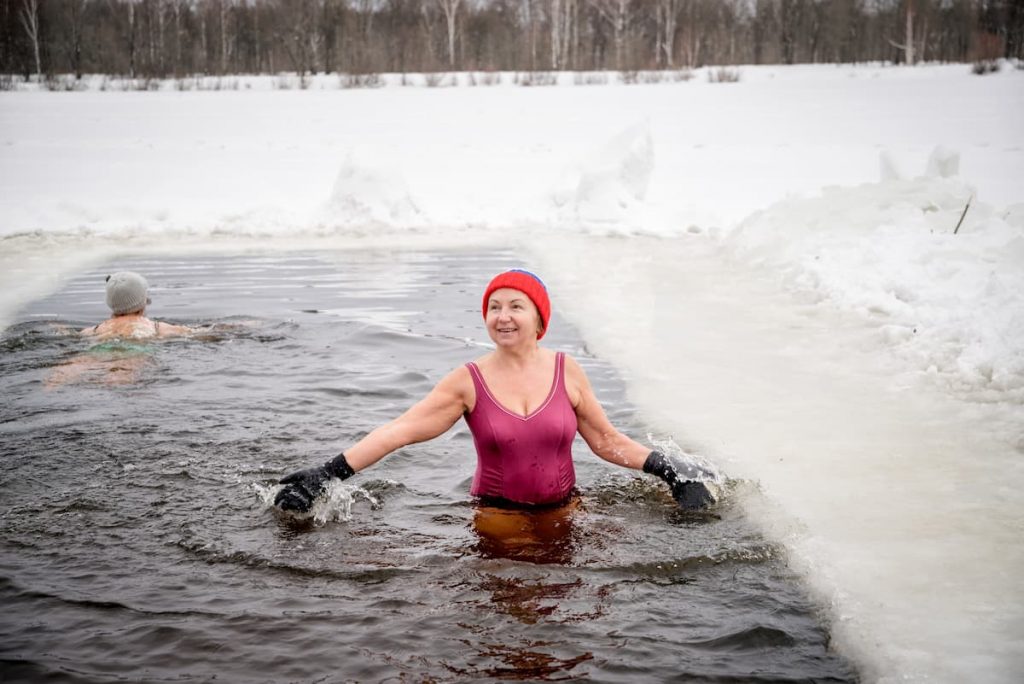
Swimming in cold water during menopause can improve overall health in many ways. Cold water reduces inflammation and boosts immunity. It can also improve circulation and help to flush toxins from the body. This can help to reduce the risk of developing chronic disease. Cold water swimming can help to increase muscular strength by activating muscles and joints. This can help to reduce the risk of injury and improve overall muscle tone.
Swimming in cold water can improve mental health. It can reduce stress and anxiety and help to improve mood. It can also help to improve focus and concentration, which can improve overall productivity. Additionally, swimming in cold water can help to boost energy levels by stimulating circulation and increasing nutrient absorption. Swimming can also provide relief from joint pains and arthritis.
Why This is Especially Beneficial During Menopause
Menopause comes with its own set of challenges, including hot flashes, night sweats, fatigue, mood swings, and other discomforts. Swimming in cold water has been found to be particularly beneficial during menopause. Cold water diverts the body’s focus from the hot flashes and reduces their intensity. It also helps to regulate hormones and helps keep cortisol levels stable. The cooling effects on the body help to reduce overall body temperatures, which can benefit women who are prone to hot flashes.
Cold water also has the added benefit of reducing stress, as it activates the parasympathetic nervous system and helps to relax the mind and body. It can also provide relief from joint pains and arthritis that are often worsened during menopause. Additionally, cold water can boost the immune system and improve overall metabolic health.
How to Get Started
Swimming in cold water during menopause is easy and accessible. All you need is a swimming pool, lake, or any body of water that is cool enough to provide the desired effects. Before getting into cold water, be sure to do some warm-up exercises to prepare your body. This will help you become accustomed to the cold water and make the transition easier.
Once you are in the water, focus on your breathing and practice deep, slow breaths to increase oxygen flow and help your body adjust. Start with short swimming sessions, around 10 minutes, and then gradually increase the length of your sessions over time. Make sure to take regular breaks to warm up and drink adequate amounts of water.
It is also important to warm up after each session and do some stretching. Start with a few rounds of gentle stretching and then progress to dynamic stretching. This will help to reduce muscle cramps, soothe any residual aches and pains, and prevent any potential injuries.
Follow these simple steps to get started and enjoy the numerous benefits of swimming in cold water during menopause!
Tips for Success
Swimming in cold water during menopause can be a great experience. Here are a few tips that will help you get the most out of your experience:
- Dress appropriately – Wear the right clothes for the climate. A swim cap and goggles can help keep your body warm while swimming, and a lightweight wetsuit can also be beneficial.
- Warm up properly – As with any physical activity, warming up is important to help your body adjust to the cold water and reduce injuries.
- Breath slowly – When you’re in the water, take deep, slow breaths to increase oxygen flow and help your body get used to the cold.
- Take breaks often – Take regular breaks between sessions to warm up and drink some water.
- Cool down and stretch – After each session, cool down and do some stretching. This will help to reduce stiffness and prevent injuries.
By following these tips, you can make the most out of your experience and enjoy the many benefits of swimming in cold water during menopause.
As You Swim…
Swimming in cold water during menopause has certainly become a popular activity. With the potential for numerous health benefits, it is no wonder so many people are trying it out. If you want to learn about more ways to improve your health, visit our contact page to connect with an AOB/GYN specialist. Women’s Health is who we are.Z
